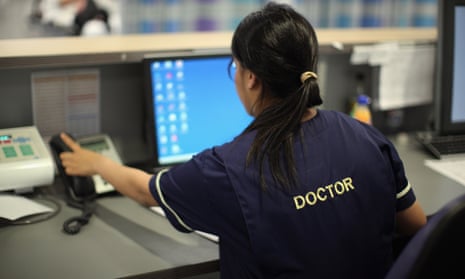All deaths in hospital will be examined by a second doctor unconnected to the patient’s treatment, in a move intended to improve care and help bereaved relatives understand why their loved one died.
Jeremy Hunt, the health secretary, told the Guardian he will announce the change – to take effect in England in 2018 – in a speech to a global summit on patient safety in London on Thursday.
He will also unveil plans to change the law so that doctors and nurses receive legal protection to enable them to speak out candidly about mistakes in hospital that have harmed patients’ health.
From 2018 doctors acting as expert medical examiners will review and confirm the cause of all the 250,000 deaths a year that occur in hospital. They will be medics who already work at the NHS trust but in another department to the one in which the patient died.
Hunt will say that they will provide “a second look” at events preceding the death, although doctors involved in looking after the patient who has died will continue to be the ones who certify the death and list the cause or causes of death on the death certificate.
If their examination of the body reveals evidence of pressure sores, for example, that could show that the patient was not well enough looked after in hospital or a care home in their final days.
The change was first recommended in 2005 by Dame Janet Smith’s inquiry into Dr Harold Shipman’s killing of more than 200 of his patients. Sir Robert Francis’s 2013 report into the Mid Staffs hospital scandal also backed it and said it would let relatives raise any concerns they had, especially about quality of care.
“Expert medical examiners will sign off on all hospital deaths, which means that all deaths are getting a second look. They can go into real detail about cases they have real worry about and report that to the trust,” Hunt will say.
“There won’t be a detailed investigation of every death as most deaths are predictable and from a medical point of view fairly straightforward, though sad for those affected.
“But part of their role will be to look at trends and if there’s been a sudden increase in people dying, they might spot a trend there,” Hunt is expected to say. They will report any concerns to the trust or potentially the Care Quality Commission, he will add.
Labour welcomed the move but accused Hunt of taking too long to make it, especially with it not starting until 2018.
“The implementation of independent medical examiners is long overdue and it is unclear why it is being further delayed until 2018, given that the previous Labour government first legislated for these important reforms in 2009,” said Heidi Alexander, the shadow health secretary.
Peter Walsh, chief executive of Action against Medical Accidents, a patient safety charity, backed the “much overdue” move. But it would not tackle “the woeful inconsistency and often inadequate quality of NHS investigations into serious incidents overall”.
Walsh added: “We desperately need to see serious improvement in the capacity of NHS investigations to get to the bottom of patient safety incidents and bring about real improvements in patient safety.”
The new legal protection for staff disclosing information about a blunder means they will have “safe spaces” in which to outline what happened without fear that it will harm their careers or lead to a lawsuit for negligence, Hunt will say.
“We are biting the bullet on this and are going to change the law. Doctors and nurses will have complete freedom to be completely honest [and] speak in an uninhibited way.”
The safeguards will apply to staff who give evidence to both the new Healthcare Safety Investigation Branch that he is setting up and any inquiry instigated by their own NHS trust, initially involving errors in maternity care which have led, for instance, to a mother or newborn baby’s death.
But Walsh voiced concern about the “safe spaces” plan. “The intentions are good but there may be unintended consequences for patient safety if information is so protected that regulators could not take action to protect patients,” he said.
The Royal College of Physicians, which represents general hospital doctors in England, said having an expert medical examiner involved in every death would help “provide patients and their families with the openness and transparency which they deserve when things go wrong, and to support healthcare professionals to learn from and correct any deficiencies in care which are found. We will only improve if we move from a culture of blame to a culture of learning.”
